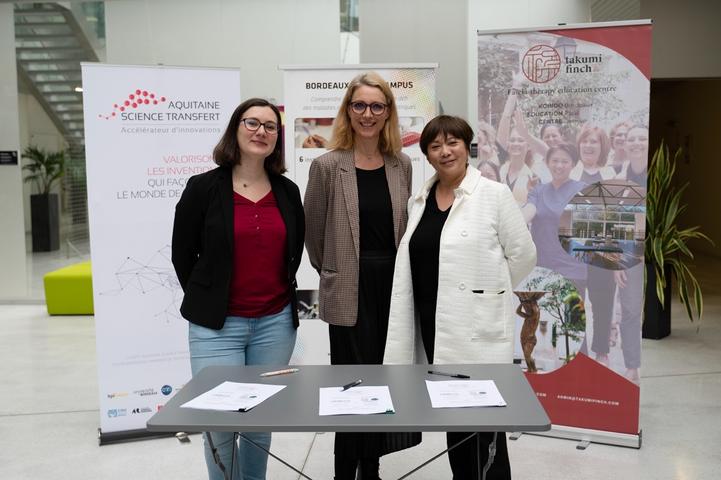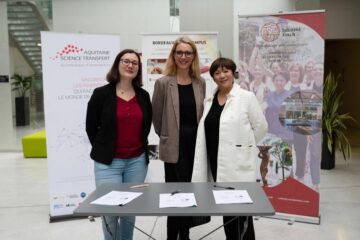
Research collaboration agreement between IMN and Takumi-Finch Institute

A research collaboration agreement was signed in February 2023 between the Institute of Neurodegenerative Diseases (IMN) and the Takumi-Finch Institute, a training center specialized in manual therapies. Within the framework of the TouchFace&Brain project developed by Laure Zago (IMN), this collaboration agreement will make it possible to set up and validate standardized massage protocols in order to characterize the effects of relaxation at the physiological, cerebral and cognitive-emotional levels, in the laboratory.
Touch therapy is one of the oldest forms of therapeutic intervention. It refers to any treatment administered by the hands and carrying a beneficial intention, whether therapeutic (to reduce pain) and/or hygienic (to promote well-being).
Among the many manual therapies, massage is documented in virtually every ancient culture, from ancient China, Japan, India, and Egypt, to ancient Greece and Roman civilization. These myofascial manual techniques that work on the manipulation of soft tissues (skin, muscles, fascia, tendons) with different types of movements (friction, effleurage, kneading, percussion) produce local effects of tissue relaxation, and effects on the vascular, lymphatic and nervous systems of the body. In addition to these benefits on the body, more recent studies have shown that massage has a central psychophysiological action, characterized by a decrease in physiological markers related to stress and anxiety, and an improvement in well-being and quality of life indicators. Thus massage, because it touches the skin, is also a powerful means of modulating emotional responses (“affective and social touch” of the tactile function) which has been shown to organize social and affiliative behavior in humans and other mammals.
Finally, for some authors, touch-based therapies could be adapted in pathologies presenting disturbances of body image as well as those presenting deficits of social interactions and somato-sensory integrations.
However, the central mechanisms at the origin of these different effects remain largely to be determined. The TouchFace&Brain project will focus on characterizing 1) the physiological, cerebral and behavioral effects of relaxation obtained after facial massage; 2) whether stimulation of the facial skin muscles that allow the production of facial expressions can have an impact on socio-emotional skills.
Contact
Last update 24/04/23
